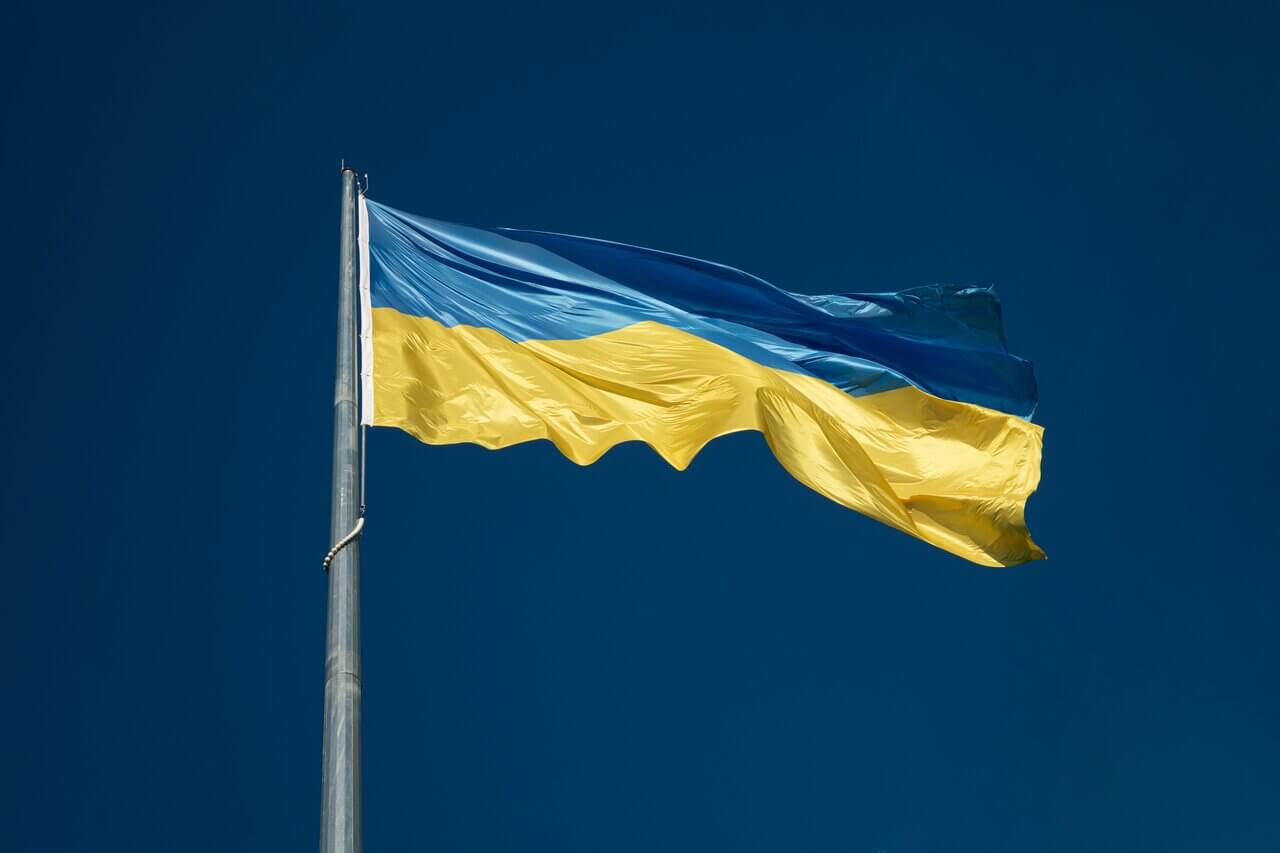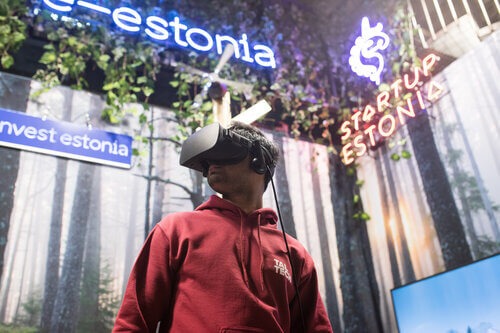no limits with e-Residency
Ukrainian e-resident Daniil Lubkin founded AI-based remote sensing platform Beholder in Estonia to be in the EU and to access capital
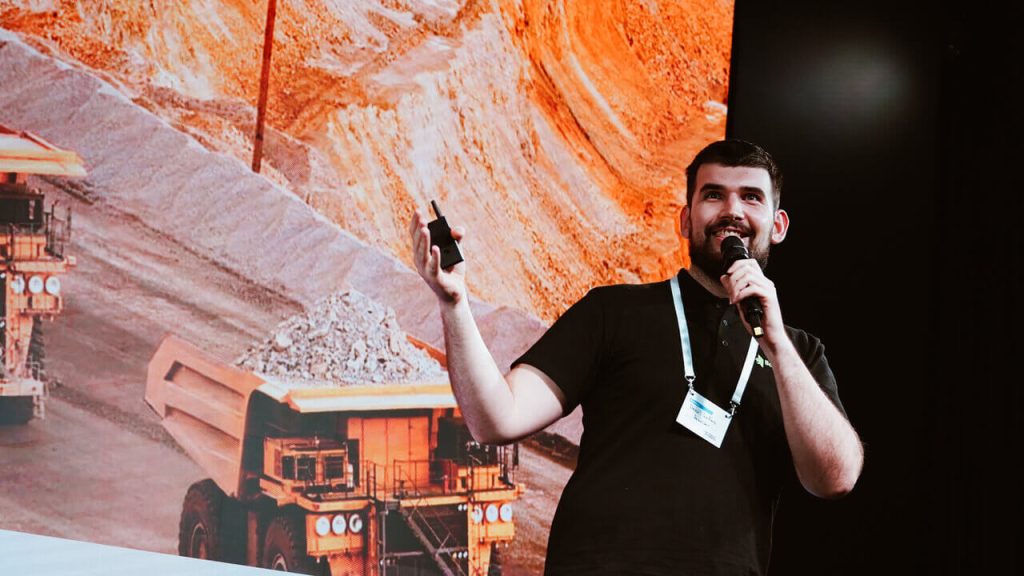
Daniil Lubkin is from Kyiv. He was born there, raised and educated there and continues to live and work there, quite industriously, in spite of regular air raid sirens and rolling blackouts. He studied at the National University of Kyiv's Mohyla Academy, where he majored in philosophy and got a master's in economics. These days Daniil has also been pursuing a master's in geology. More on that later.
Whatever he's working on, Daniil doesn't let a pesky incoming rocket knock him off his course.
"I have my own power bank in the house and in the office as well," says Daniil. "Most members of our team have power banks and access to a stable internet connection," he says. "It creates more stress, for sure, the rocket strikes and blackouts, but the main thing for us is adaptability."
Daniil is the chief operating officer of Beholder, a three-year-old company that he established with CEO Andriy Sevryukov and Serhii Lubkin, the firm's chief marketing officer. Beholder has developed an AI-based remote sensing platform that allows one to better explore the Earth for critical minerals and energy resources. It accomplishes this by using machine learning tools to process satellite data, in addition to ground data and other information provided by its users.
The firm's name was inspired by a Dungeons & Dragons character called Beholder, who is capable of seeing through walls and underground. In the same way, the firm can see things.
While Daniil works in Kyiv, members of the company's team -- currently about 11 people -- are scattered across Europe. Beholder was incorporated in 2021 in Tallinn, Estonia, and all three of the company's co-founders opted to obtain Estonian e-Residency at that time, which allows them to run their company as an EU-based enterprise, regardless of where they happen to be.
In Ukraine, the e-Residency program is well-known among entrepreneurs, Daniil says. The company decided to set up shop in Estonia mainly in order to access capital in the EU. "Most venture capital firms in Europe have some kind of public funding inside of them, which prohibits them from investing outside of the EU, especially at the early stages," Daniil explains.
But there were other perks to becoming an Estonian entity. "We love the ease of dealing with the tax authorities, " he says, noting that running the business in general using Estonia's ecosystem of digital services makes the venture "easy to manage". They also just like Tallinn.
"We were thinking of opening an office in the EU and decided that Tallinn would be a good place," he said. The three co-founders happened to be in different places when they applied for e-Residency -- one in Ukraine, another in the US, and a third in Turkey at the time -- but their application processes went smoothly and they picked up their kits around the same time.
"With equity, we all wanted to be in the company structure, legally," says Daniil. "For us, it's easier to exchange documents, sign them, and send them," he says.
"The technology behind [e-Residency] is really great. It is like rocket science."
As a company, Beholder developed as a concept while its founders were working for AgriEye, a company that was doing remote sensing for agricultural purposes using satellite data. At the start of the COVID-19 pandemic, sales dropped off, and a client asked them to see if they could use their expertise and remote sensing tools to look for natural resources instead. This led them to test out some hypotheses, and to run a few proof of concepts and pilot studies globally.
"We decided that we could do that and that it was an interesting market," says Daniil.
The company raised some pre-seed money at that time, but in April of this year, it closed a funding round worth $1 million. EIT InnoEnergy, Rockstart Energy, and STRT invested. One month later, the company pitched at Latitude59, Estonia's preeminent startup and technology conference and won its top prize, €600,000 in seed cash.
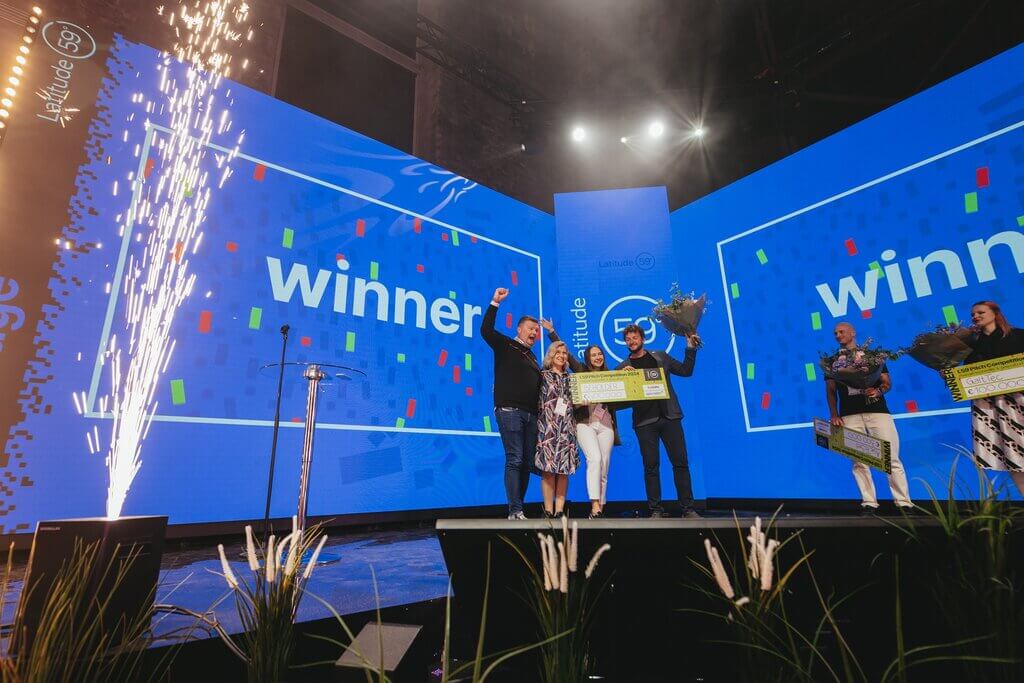
"It was pretty unexpected to be honest," says Daniil. "I had hoped for the best, but there were a lot of really good competing teams."
With the new funds in hand, the company intends to invest more in its sales force and business development teams, as most investments have been focused on developing its technology. "We have a great product, but we need to bring it to the market," Daniil says. He expects that headcount could double as it adds muscle to its business development and sales teams.
There are also plans to open an office in Tallinn, to develop more in the country, and to have "boots on the ground" in Estonia, Daniil adds. "Tallinn and Kyiv will become the two gravitational centers of the company," he says. He notes that Estonia hosts "amazing talent," and that he just likes the youthful energy of the startup community. Daniil Lubkin himself is just 27 years old.
"I love the energy to be honest," he says of the Tallinn startup scene.
"I have pitched in other countries, and they don't compare to the energy you see at Latitude59 and in Estonia."
Beholder's main clients have been mining companies and, within that industry, different segments. Some are early stage, smaller firms just like Beholder, that work like startups, testing out and following up on theories and hypotheses.
"If they can find something, then they can do preliminary research, raise capital," says Daniil. If exploratory work turns up something promising, they can raise even more capital. At this point, larger companies often swoop in and they either do an acquisition or a partnership, which is beneficial to the smaller firms too, as they can reach the market faster.
Beholder is not out to fleece such firms, he insists. Rather the company often accepts equity in a project in lieu of payment, "instead of stripping them of their funds," Daniil notes. Those who pay for scans are another revenue stream for the company. Beholder is also developing products for geologists, such as BeholderHub, an online platform. This is the company's way of familiarizing geologists with newer technologies so that when they go to work for larger firms, they can become "ambassadors for more advanced tools." By using such tools, users can make smarter, more informed decisions before they apply for permits or begin excavation at a site of interest.
Currently, he notes, geologists still work like detectives trying to solve a cold case. "Geology, if you think about it, is a really cold case," says Daniil. "Something happened a million years ago, and you have to figure out what it was." Beholder claims it can bring more certainty to findings by using its satellite data and ground data, which includes such data points as gravitational and magnetic anomalies. The data comes from diverse sources. Companies often have their own satellites, he notes, and their own data. Daniil has been alongside the company's development work getting his master's in geology, so that he is on the same page with the rest of the firm.
Beholder's AI can help to reduce the noise in all of these data sources, Daniil notes. "Our secret sauce is not only our data, but how we prepare it."
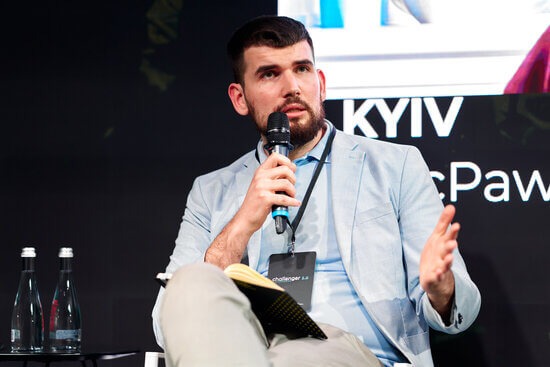
It has been admittedly something of a wild ride for the company, which three years into its existence has weathered a pandemic, a war, and now taken the top prize at Latitude59.
When the war started, Beholder's team members were scattered throughout Ukraine and Europe. The company lost some months of development in 2022, as it had to evacuate team members from Kherson and Kharkiv, cities that were occupied or under bombardment from Russia's military.
"We were doing security management," he says. "This was hard for us, but we got back on track. Most of our team that was with us pre-full-scale invasion are still with us," he says.
He adds that the war has given him perspective. The daily trifles and drama of running a business -- losing a client, not being on schedule -- seem less significant. Daniil notes:
"In comparison to what we have been through, it's not so bad, and we'll survive it. It's not the end of the world, because we have seen the end of the world."
The war has also taught him something about the resilience of people. "There is something about adaptability in humans which is fascinating," he says, "because there is just no limit to it."
More from e-Residency
- Sign up for our newsletter
- Watch fresh video content - subscribe to our Youtube channel
- Meet our team and e-residents - register for our next Live Q&A
